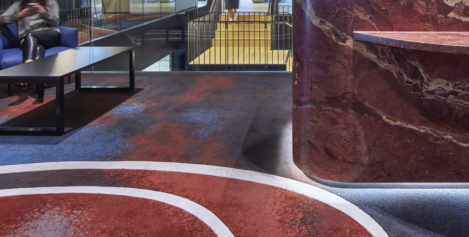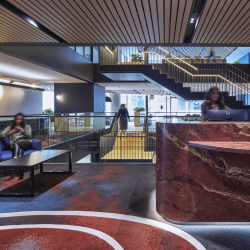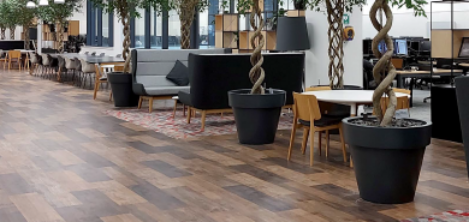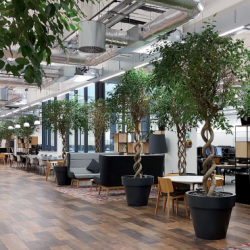To provide the best experiences, we use technologies like cookies to store and/or access device information. Consenting to these technologies will allow us to process data such as browsing behaviour or unique IDs on this site. Not consenting or withdrawing consent, may adversely affect certain features and functions.
The technical storage or access is strictly necessary for the legitimate purpose of enabling the use of a specific service explicitly requested by the subscriber or user, or for the sole purpose of carrying out the transmission of a communication over an electronic communications network.
The technical storage or access is necessary for the legitimate purpose of storing preferences that are not requested by the subscriber or user.
The technical storage or access that is used exclusively for statistical purposes.
The technical storage or access that is used exclusively for anonymous statistical purposes. Without a subpoena, voluntary compliance on the part of your Internet Service Provider, or additional records from a third party, information stored or retrieved for this purpose alone cannot usually be used to identify you.
The technical storage or access is required to create user profiles to send advertising, or to track the user on a website or across several websites for similar marketing purposes.
 People are still undecided on whether remote and hybrid working are having a positive or negative impact on their ‘workplace community’. According to a new poll, 37 per cent of UK employees feel that hybrid work has made it harder to create a workplace community but 41 per cent disagree. These are the findings from O.C. Tanner’s 2023 Global Culture Report which collected and analysed the perspectives of over 36,000 employees, leaders, HR practitioners, and business executives from 20 countries around the world, including 4,653 from the UK. (more…)
People are still undecided on whether remote and hybrid working are having a positive or negative impact on their ‘workplace community’. According to a new poll, 37 per cent of UK employees feel that hybrid work has made it harder to create a workplace community but 41 per cent disagree. These are the findings from O.C. Tanner’s 2023 Global Culture Report which collected and analysed the perspectives of over 36,000 employees, leaders, HR practitioners, and business executives from 20 countries around the world, including 4,653 from the UK. (more…)












 Just what is it that you want to do? People of a certain age will know what answers come next. The rest of you can scroll down to find out. At least two-thirds of those responses still resonate when you ask people want they want from their work and workplaces. They wanna be free to do what they wanna do. And they wanna have a good time. And that’s what they’re gonna do. These are the exact same responses you hear when THE great, existential questions facing the office sector and occupiers are brought up along with those others that follow on from them. What is the office for, how should we design it, what does it do better than other places of work and what do people really want from it?
Just what is it that you want to do? People of a certain age will know what answers come next. The rest of you can scroll down to find out. At least two-thirds of those responses still resonate when you ask people want they want from their work and workplaces. They wanna be free to do what they wanna do. And they wanna have a good time. And that’s what they’re gonna do. These are the exact same responses you hear when THE great, existential questions facing the office sector and occupiers are brought up along with those others that follow on from them. What is the office for, how should we design it, what does it do better than other places of work and what do people really want from it? 




















